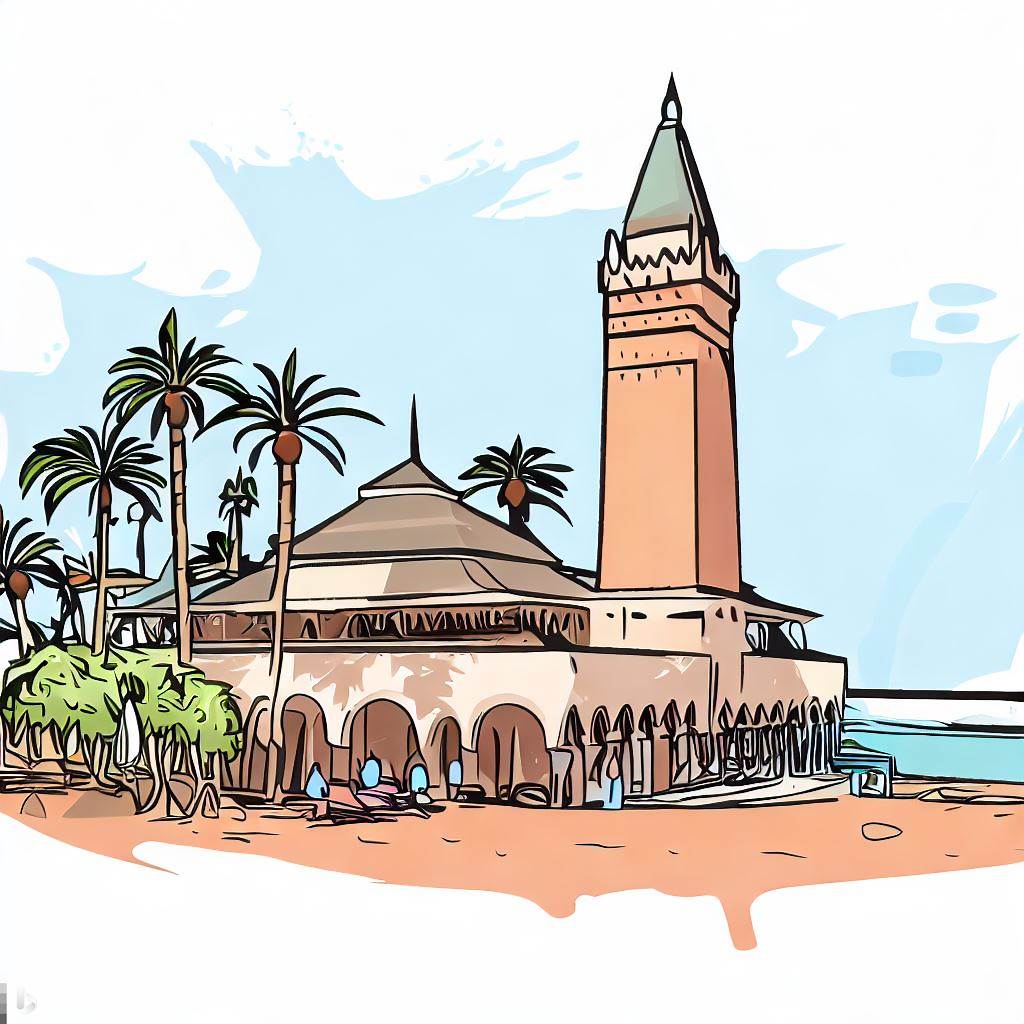
Morocco Travel Tips for First-Timers: Your Ultimate Guide
Embarking on your first journey to Morocco can be both exciting and a little daunting. With its rich history, vibrant culture, and stunning landscapes, there's so much to explore. But where should you start? This comprehensive guide is packed with Morocco travel tips for first-timers, ensuring you have an unforgettable experience.
Whether you're wondering about the best time to visit, how to respect the local culture, or where to find the tastiest Moroccan cuisine, we've got you covered. So, let's dive in and start planning your Moroccan adventure!
Table of Contents
- Best Time to Visit Morocco
- Understanding Cultural Nuances
- Safety Tips for First-Time Travellers
- Food and Drink in Morocco
- Choosing Your Accommodation
- Must-Do Activities in Morocco
- Packing Tips for Morocco
- Common Misconceptions About Morocco
- Conclusion
Best Time to Visit Morocco
One of the first things to consider when planning your trip is the best time to visit Morocco. The country experiences a wide range of climates throughout the year, so the ideal time to visit will depend on what you want to do.
Generally, spring (April to June) and autumn (September to November) are the most pleasant times to visit. The weather is warm but not too hot, making it perfect for exploring the cities and countryside. If you're interested in trekking in the Atlas Mountains, spring is the best time to go.
Summer (July and August) can be incredibly hot, especially in the desert and interior cities like Marrakech and Fes. However, the coastal areas, including Agadir, remain relatively cool and are popular destinations during this time.
Winter (December to February) can be surprisingly cold, especially in the mountains and desert. However, it's a great time to visit if you want to avoid the crowds and don't mind a bit of chill.
See Also: A Comprehensive Guide to Weather in Agadir by Month
Understanding Cultural Nuances
Understanding and respecting the local culture is crucial when visiting any new country, and Morocco is no exception. As a predominantly Muslim country, Morocco has a rich cultural tapestry that first-time visitors should be aware of to ensure a respectful and enjoyable visit.
One of the first things you'll notice is the call to prayer, which happens five times a day. During this time, you'll see many locals heading to the mosque. While non-Muslims are generally not allowed inside mosques in Morocco, it's a fascinating cultural experience to witness.
When it comes to clothing, it's important to dress modestly out of respect for the local culture. This is particularly important in rural areas and during the holy month of Ramadan. Women, in particular, should avoid showing too much skin. When visiting religious sites, both men and women should cover their shoulders and knees.
It's also worth noting that Moroccan people are incredibly hospitable and friendly. Don't be surprised if you're invited into a local's home for tea – it's a sign of Moroccan generosity and a wonderful opportunity to learn more about the local culture.
Safety Tips for First-Time Travellers
Like any travel destination, it's important to keep safety in mind when visiting Morocco. While Morocco is generally a safe country to visit, there are a few things to be aware of to ensure your trip goes smoothly.
Firstly, be aware of your belongings at all times, particularly in busy areas like markets and bus stations. Petty theft can occur, so it's a good idea to keep your valuables secure and out of sight.
It's also a good idea to avoid walking alone at night, particularly in unfamiliar areas. If you need to get around, consider using a reputable taxi service or arranging transport through your hotel.
Finally, it's important to have comprehensive travel insurance that covers any potential medical expenses. While Morocco has decent healthcare facilities, particularly in larger cities, having insurance will give you peace of mind should you need any medical assistance during your trip.
See Also: Helpful Tips When Flying
Food and Drink in Morocco
One of the highlights of any trip to Morocco is undoubtedly the food. Moroccan cuisine is a delightful blend of African, Arab, and Mediterranean influences, resulting in a variety of flavours that are sure to tantalise your taste buds.
Start your culinary adventure with a traditional Moroccan tagine, a slow-cooked stew named after the earthenware pot it's cooked in. Couscous is another staple, often served with vegetables and meat. For the adventurous eaters, try a sheep's head in Marrakech or a camel burger in Fes.
Don't forget to try the local pastries, like the sweet and sticky pastilla, or enjoy a refreshing glass of mint tea, Morocco's national drink. Remember, it's customary to accept at least three cups of tea when it's offered – it's seen as a sign of friendship and hospitality.
When it comes to drinking water, it's best to stick to bottled water to avoid any potential stomach upsets. Also, alcohol isn't widely available outside of larger cities and resorts due to religious reasons, so keep this in mind if you enjoy a drink with your meal.
Choosing Your Accommodation
Choosing the right accommodation can make a big difference to your Moroccan experience. From luxury resorts to traditional riads, Morocco offers a range of accommodation options to suit all budgets and preferences.
Riads, traditional Moroccan houses with interior gardens or courtyards, are a popular choice for those looking for a unique and authentic stay. Many riads have been converted into guesthouses and offer a tranquil escape from the bustling city streets.
For those looking for a bit of luxury, Morocco's larger cities and coastal resorts offer a range of high-end hotels and resorts. Many of these offer amenities such as swimming pools, spas, and fine dining restaurants.
Alternatively, for the budget-conscious traveller, Morocco also has a good selection of hostels and budget hotels. Just be sure to check reviews and book in advance to secure the best deals.
See Also: Hotel deals on Booking.com
See Also: Our own hotels finder
Must-Do Activities in Morocco
Morocco is a country of diverse landscapes and rich history, offering a plethora of activities for all types of travellers. Whether you're an adventure seeker, a culture enthusiast, or a foodie, there's something for everyone in Morocco.
For history buffs, a visit to the ancient city of Fes is a must. Wander through the labyrinthine streets of the Medina, visit the world's oldest university, and marvel at the stunning architecture of the Royal Palace.
If adventure is what you're after, consider a trek in the Atlas Mountains, a camel ride in the Sahara Desert, or surfing in the coastal town of Taghazout. For a more relaxed pace, enjoy a traditional hammam experience, take a cooking class, or simply enjoy the beautiful beaches of Agadir.
Remember, no matter what activities you choose, the most important thing is to immerse yourself in the local culture, respect the customs and traditions, and enjoy the unique experiences that Morocco has to offer.
See Also: Find the best things to do in Agadir
Packing Tips for Morocco
Packing for your trip to Morocco can be a bit of a challenge due to the country's diverse climates and cultural norms. Here are some tips to help you pack the right items for your Moroccan adventure.
Firstly, pack clothing that can be layered. This is particularly important if you're travelling in the cooler months or planning to visit the mountains or desert where temperatures can drop significantly at night.
Remember to pack modest clothing out of respect for the local culture. Loose, breathable clothing is also a good idea to keep you comfortable in the heat. Don't forget a good pair of walking shoes for exploring the cities and countryside.
Other essentials include a good sunscreen, a hat for sun protection, a reusable water bottle, and a power adapter for your electronics (Morocco uses type C and E plugs). If you're planning on visiting the desert or going trekking, consider packing a headlamp and a good quality sleeping bag.
See Also: Travel Essentials Reviews
Common Misconceptions About Morocco
Like any country, Morocco is subject to a number of misconceptions, particularly among those who have never visited. Let's debunk some of the most common myths about Morocco.
Myth 1: Morocco is dangerous - While it's always important to take precautions when travelling, Morocco is generally a safe country for tourists. The Moroccan government takes tourist safety seriously and incidents of crime are typically low.
Myth 2: You'll get sick from the food - While it's true that travellers' stomachs might need a few days to adjust to the local cuisine, Moroccan food is generally safe and delicious. Stick to busy restaurants and food stalls where the food is cooked fresh.
Myth 3: Women can't travel alone in Morocco - While it's true that women, particularly solo travellers, may experience some unwanted attention, this is usually harmless and can be managed with a firm 'no'. Many women travel solo in Morocco and have a great time.
Myth 4: Everyone speaks English - While English is spoken in tourist areas and by younger Moroccans, French and Arabic are the most widely spoken languages. Learning a few basic phrases in Arabic or French can go a long way.
Conclusion
Travelling to Morocco for the first time is an exciting adventure filled with new experiences, tastes, and sights. From the bustling souks of Marrakech to the tranquil beaches of Agadir, Morocco offers a wealth of experiences for every traveller.
By understanding and respecting the local culture, being aware of your safety, and planning your trip with care, you can ensure that your first trip to Morocco will be a memorable one. So why wait? Start planning your Moroccan adventure today!
Remember, the key to a successful trip is preparation. With these Morocco travel tips for first-timers, you're well on your way to having an unforgettable Moroccan adventure. Safe travels!
See Also: The Ultimate Agadir Guide: Discover the Jewel of Morocco
